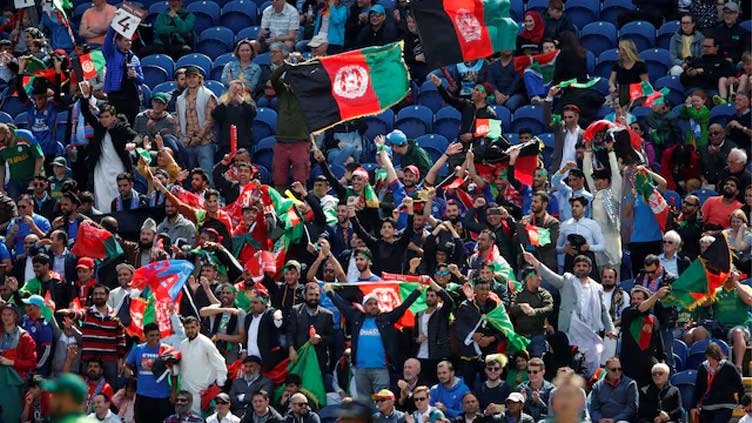From success story to headache: ICC grapples with Afghanistan dilemma

Cricket
ACB had 25 contracted women players in 2020 but most of them are now living in exile in Australia
NEW DELHI (Reuters) - After years of showcasing Afghanistan's remarkable rise as a success story, the International Cricket Council (ICC) is under pressure to crack the whip on its member nation, which has seen major curtailment of women's rights by the Taliban government.
England and South Africa have been urged to boycott next month's Champions Trophy matches against Afghanistan, whose maiden appearance in the men's 50-overs tournament as one of the world's top eight teams is a testament to their growth in recent years.
The rapid rise of their men's team has coincided with the disbanding of their women's squad even though that team never played any international match.
The Afghanistan Cricket Board (ACB) had 25 contracted women players in 2020 but most of them are now living in exile in Australia following the Taliban takeover of their country in August 2021.
The new rulers clamped down on the rights of women and girls, restricting their access to education and work, curbing their freedom of movement, and forcing them to cover their faces and bodies.
"Where's the hope for women that want to play sport, want to go to school, that want to be able to work? Where is the hope for them?" Tonia Antoniazzi, a Labour MP in the UK, told BBC.
"This is a bigger issue around sex-apartheid that I feel very strongly about."
While the English and the South African boards have ruled out boycotting Champions Trophy fixtures against Afghanistan, they placed the onus on the ICC to formulate a unified approach to the tricky issue.
The Dubai-headquartered governing body said it was on the task.
"We are committed to leveraging our influence constructively to support the Afghanistan Cricket Board (ACB) in fostering cricket development and ensuring playing opportunities for both men and women in Afghanistan," an ICC spokesperson told Reuters.
The ICC has formed a task force headed by its deputy chairman Imran Khwaja, who is leading "the ongoing dialogue on this matter", the official said.
While the women's team has been disbanded, Afghanistan men's team have shifted base to Dubai.
Star players Rashid Khan and Mohammad Nabi have raised voice against the "deeply unjust" move to deny Afghan women access to education.
"This decision has profoundly affected not only their future but also the broader fabric of our society," Rashid, who has been the face of Afghan cricket, wrote on X last month.
"BETRAYAL OF DREAMS"
Former captain Nabi echoed Rashid's view on the same social media platform.
"Denying girls the chance to learn and serve their people is a betrayal of both their dreams and our nation’s future," wrote Nabi.
"Let our daughters study, grow, and build a better Afghanistan for everyone. This is their right, and it is our duty to protect it."
Afghanistan became a test-playing nation in 2017 and finished sixth in the 2023 ODI World Cup beating former champions England, Pakistan and Sri Lanka in group matches.
Their English coach Jonathan Trott also guided them to the semi-finals of the T20 World Cup in West Indies and the United States last year.
Afghanistan's full-membership looked at stake under the Taliban rule but most ICC members felt banning them would achieve little in a strife-torn country where the game remains a major source of happiness.
Britain's Culture minister Lisa Nandy was also apprehensive of the utility of boycotting a cricket team.
"I think they are counterproductive, penalise hard-working athletes," Nandy told BBC.
"They are not the people we should be penalising for the Taliban's appalling actions against women and girls..."
"The question is, what are the right levers? Diplomacy and public pressure. We are raising awareness but we should allow sport to be sport."
England, who have ruled out any bilateral cricket with Afghanistan, forfeited a 2003 World Cup game against Zimbabwe in protest against Robert Mugabe's regime.
Australia also play Afghanistan only in multi-team ICC events and have refused to host them more than once.
South Africa Sports Minister Gayton McKenzie has likened the Afghanistan situation to the Apartheid era in his own country when much of the sporting world boycotted them.
Afghanistan begin their Group B campaign against South Africa in Karachi on Feb. 21 before taking on England and Australia.
India, who will play their matches in Dubai, are in Group A with defending champions Pakistan, New Zealand and Bangladesh.


